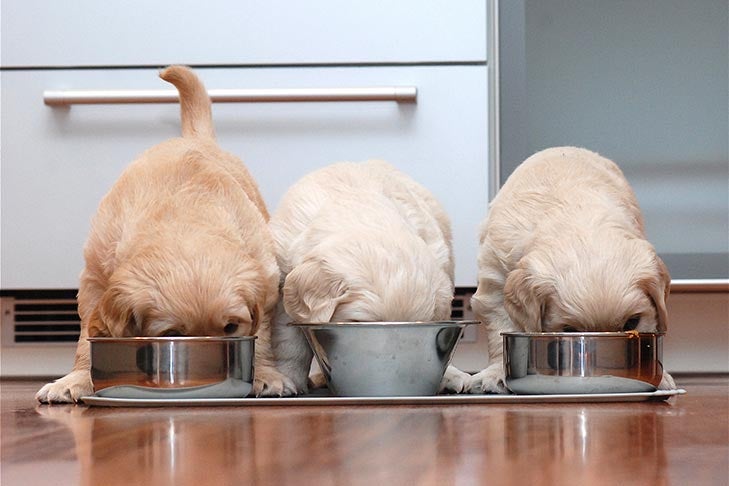As human foods go, sunflower seeds are among the healthier options to occasionally share with your dog. These nutty and delicious treats are filled with nutrients. But how can you safely feed them to your dog?
Are Sunflower Seeds Good for Dogs?
Dogs should be given only natural raw or toasted sunflower seeds (not salted ones). Studies on the effects of fatty acids on dogs have shown that, given as a dietary supplement, they improve the condition of a dog’s skin and contribute to a healthy, shiny coat.

Just one-quarter cup of shelled sunflower seeds contains 5.5 grams of protein, three grams of fiber, 14 grams of fats, and 163 calories. Sunflower seeds contain Vitamin E, known to be an antioxidant. It also plays a role in forming cell membranes and supporting the immune system. Just one ounce of seeds contains a dog’s daily requirement. Along with Vitamin E, the seeds are packed with vitamins and minerals like B1, B6, B3, selenium, copper, and manganese.
Of course, your dog’s food should be providing all of the nutrients they need to thrive, but the health benefits of this delicious snack are an added bonus.
How Should I Feed My Dog Sunflower Seeds?
As a general rule, sunflower seeds should be an occasional snack given in moderate amounts. Small dogs can have ten to 20 seeds a week, while large dogs should have no more than 20 to 40 seeds per week. Moderation also goes for products like sunflower butter, limiting it to a spoonful once in a while. Contact your veterinarian before adding them to your dog’s diet.
What are the Risks of Feeding My Dog Sunflower Seeds?
Make sure to only give your dog plain sunflower seeds. The salt in packaged seeds is harmful and can cause salt toxicosis, whose effects can include muscle tremors, weakness, and gastroenteritis.

Most important, don’t allow your dog to eat sunflower seed shells. These husks are extremely hard and can’t be broken down during digestion. Shells can get stuck in the digestive tract, causing blockage or obstruction. At the very least, your dog could suffer from abdominal pain, diarrhea, and vomiting. The shells are also a serious choking hazard, so be sure to offer your pup only shelled seeds.
As for those beneficial fatty acids and fat content: what’s good for dogs in moderate amounts is harmful in large amounts. Eating too many sunflower seeds can result in gastrointestinal upset and irritation. If your dog is prone to pancreatitis or your pet has a sensitive stomach, it’s best to avoid sunflower seeds altogether, since the high-fat content can bring on vomiting, lethargy, decreased appetite, and other digestive upsets.
In general, sunflower seeds are not a bad treat for your dog. As long as you’re feeding them unsalted, shelled, natural seeds, they can enjoy moderate amounts of this nutrient-filled, nutty-flavored snack.

